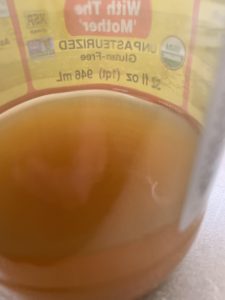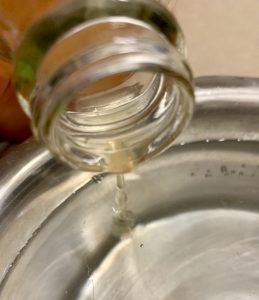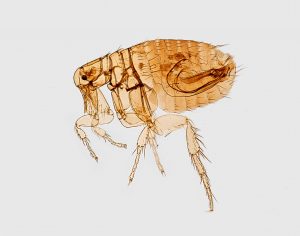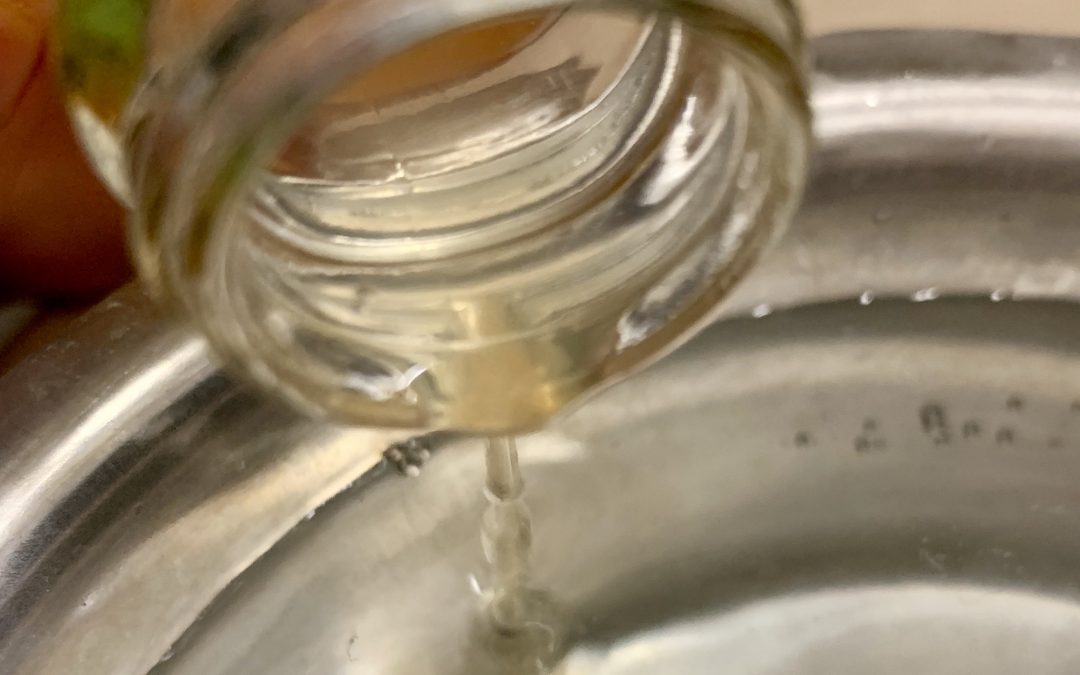How Do I Use Apple Cider Vinegar for My Dog?
Apple cider vinegar can be used internally and externally with many benefits to pet health.
Apple cider vinegar is so much more than a kitchen staple. Dogs and cats can benefit from this acid which can be diluted to a milder pH of roughly 3-5 depending on how much it’s diluted, of course. Apple cider vinegar is good at many things in pet care: as an ear cleaner, a foot cleanser and a skin soother. Here’s holistic veterinarian Dr Jim Carlson, owner of Riverside Animal Clinic & Holistic Center and host of the Holistic Vet Advice Podcast with Dr. Jim and Cristen Carlson on Voice America World Talk Radio. Dr. Carlson discusses the benefits of apple cider vinegar for dogs on the podcast featured in the link above.
The three main takeaways from apple cider vinegar that make Dr. Carlson a believer are:
ACV helps alkalinize the body. Why is this important? ACV acts as an acid when used topically. But when the acetic acid is used up in the body, ACV will begin to alkalinize the body.
ACV can improve digestion or aid in digesting food.
ACV has benefits when used both topically and internally.
Want the short version? Take a look at this video by Dr. Jim Carlson about the benefits of apple cider vinegar in dogs.

The right side of the image shows organic vinegar with the “mother”
Does Apple Cider Vinegar Help A Dog’s Itchy Skin?
Whether or not apple cider vinegar helps a dog’s itchy skin depends on the skin condition. When considering skin conditions, there are a lot of different reasons pet owners come to see a veterinarian. Some dogs have itched until their skin is bloody with scratches, some have itched for days, some have a rash and others have something entirely different going on such as: lymph node inflammation or internal reasons for itching. So this is where you want to make a determination, as a pet owner, whether using ACV is going to be kind or not. “In the first place, when used externally it will sting for sure. If your dog has open wounds, scratches, is licking a certain area or has a rash, then I would not recommend apple cider vinegar as a short term solution. You’d need to see a veterinarian for skin that’s weepy, scratched or inflamed,” said Dr. Carlson.

Apple Cider Vinegar for a Dog’s Yeast Infection on the Skin
However, there are some cases where apple cider vinegar might be a good deal for your pet’s skin. When your pet has that funky, musty odor that smells like day old bread? Apple cider vinegar to the rescue for yeasty skin! A good rule of thumb for that smelly, itchy skin that isn’t an advanced case is not to overdo the apple cider vinegar. Start with a mouth rinse of 50/50 apple cider vinegar and water to get rid of the biofilm on your pet’s mouth and tongue. Bath time is next. Use ketoconazole/chlorhexadine shampoo like the Riverside Animal Clinic & Holistic Center brand which helps settle down yeast and bacteria. You can follow that with a 50/50 apple cider vinegar rinse to end the bath. Bathe weekly and that might calm skin that’s been itchy. If it doesn’t, your next trip should be to your veterinarian for an expert diagnosis and treatment plan. For more on skin conditions, read this article on Spruce Pets and please promise me you won’t ever apply apple cider vinegar to raw skin, ears or feet.
Important takeaway: Never apply apple cider vinegar to red, irritated skin or ears
How Long Do I Soak My Dog’s Paws in Apple Cider Vinegar?
A quick paw soak in apple cider vinegar doesn’t take much time or money and can help with smelly doggie feet.
Do your dog’s paws ever smell like Fritos? That stinky little corn chip odor around the toe beans means yeast is present. This is another reason to give apple cider vinegar a try. Don’t overdo this one without seeing a veterinarian. There are many things that can make a dog’s paws itch from household chemical exposure to allergens to boredom. Carefully check your dog’s pads and between the toes for burns, skin irritation, cuts, scratches or rubbed areas.

Photo by Ruby Schmank on Unsplash
Here’s how to soak your dog’s paws. Start by making a shallow bath of warm water and apple cider vinegar. The most common ratio to use is a 50/50 mix of ACV and water. Soak for about 3 minutes, but not over 5 minutes. Use this as a good time to bond with your pet by offering treats and pets. Simply dry your pet’s paws after you use the rinse. You can do this every day for a while, but a couple of times per week is acceptable.
If you are filling a bathtub for this project, you’ll need a good size container of ACV with the mother in it for a large dog. If you’re confused about what the “mother” is in apple cider vinegar, see Dr. Carlson’s video in which he explains the mother and the importance of it in your vinegar.
 When looking for the mother in your apple cider vinegar, look at the bottom of the bottle. There, you’ll find small bits and pieces settled onto the bottom or floating in the vinegar. The mother gives the vinegar a cloudy appearance. The mother is the bacteria added to the apple and yeast mixture to make acetic acid aka apple cider vinegar. Because the mother is raw, it contains important enzymes that help digest food.
When looking for the mother in your apple cider vinegar, look at the bottom of the bottle. There, you’ll find small bits and pieces settled onto the bottom or floating in the vinegar. The mother gives the vinegar a cloudy appearance. The mother is the bacteria added to the apple and yeast mixture to make acetic acid aka apple cider vinegar. Because the mother is raw, it contains important enzymes that help digest food. Does Apple Cider Vinegar Treat Ear Infections in Dogs?

ACV can be used right in the pet’s dish. Don’t forget to wash daily!
How Much Apple Cider Vinegar Should I Give My Dog?
 Dose: Add one teaspoon ACV for small dogs to a water dish in the morning. Use one tablespoon ACV for medium and large dogs.
Dose: Add one teaspoon ACV for small dogs to a water dish in the morning. Use one tablespoon ACV for medium and large dogs.Dosing of apple cider vinegar depends on the size of the dog. You might want to consider slowly building up to the recommended dose, which is pretty small considering the size and poundage of your dog. “Some dogs want nothing to do with water that has apple cider vinegar in it, but others don’t mind,” said Dr. Carlson. “My suggestion is to be a bit sneaky when adding this to water. Just start with a bit for a week, a quarter of the dose, toss it in the water dish and gradually work up.”
It’s important to monitor your pet’s water and food intake during this time. You should look for any signs of a pet who doesn’t want to eat or drink, a reddened mouth or stomach upset. If that happens take away the ACV. Most dogs will tolerate ACV, but you should become familiar with your pet’s current intake to be certain things are going ok.
Stir the water you’re giving your pet. Apple cider vinegar is so acidic that it can destroy tooth enamel and burn the mouth or esophagus. This is why it’s used sparingly.
Important Takeaway: Go slow when adding any new item to your pet’s diet. Stir the vinegar into the water.
Apple Cider Vinegar for My Dog’s Upset Stomach – Does it Work?
When considering adding apple cider vinegar to help a pet with an upset stomach, do not to buy the clear vinegar that’s been strained of the enzyme rich mother. Clear vinegar is not for this particular problem. Bragg’s produces a fine vinegar with the mother. Some of the symptoms of an upset stomach that can be treated with apple cider vinegar include:
Symptoms of a Mildly Upset Stomach in Dogs
Gas
Belching
Metallic breath odor
Spitting Up
Hiccups
ACV might work for any dog experiencing those symptoms, but be careful to talk with a veterinarian to rule out any other conditions. There are also other digestive enzymes professionally packaged for veterinarians that might work better for those issues. Because “upset stomach” means a lot of things to a lot of people, the decision to try some vinegar shouldn’t be taken too lightly. Upset stomach can be mild or a lot more serious with diseases like pancreatitis to consider.

Pure, organic ACV
Does Apple Cider Vinegar Work for My Dog’s UTI?
“Out of all of the urinalysis I work on, the lab report very frequently says the pet’s pH is off balance. Pet owners frequently make appointments with me and report their pet is often soiling the carpet or only putting out small amounts of urine. This is an indication of a pH issue,” said Dr. Carlson. For all the details on pH issues and why your pet might be frequently but unproductively going, see our podcast on Voice America World Talk Radio that discusses the use of cranberry and how UTI’s and pH work in bladder health.
“If you’ve had a UTI as a human, you know it’s uncomfortable, downright painful even, and you probably felt run down and tired. If you are looking for ACV as a cure for a UTI, I can’t recommend that,” said Dr. Carlson. Your pet will need medical attention for urinary tract infection so see a veterinarian to diagnose and treat that issue appropriately.
However, here’s where ACV can help your pet’s urinary tract health: Apple cider vinegar might slightly acidify the urine and help your pet’s UTI health.
Can Apple Cider Vinegar Work for My Dog’s Diabetes?
New research in human medicine shows vinegar helps improve insulin sensitivity after a high carbohydrate meal. The research was performed in humans with Type 2 diabetes. Veterinarians think this could possibly be the case for dogs, too. “It’s the mother that’s the important part. The enzymes in the mother act as a prebiotic and help alkalize the cut and reduce lectins, shown to damage cell bonds and cause leaky gut. The enzymes help break down LPSs, lipopolysaccharides, which when absorbed into the blood stream can trigger insulin release and cause the body to store energy.” said Dr. Carlson.
An article in the Journal of Evidence-Based Integrative Medicine reports the findings of vinegar as a diabetes control method by looking at short and long term glucose control. Researchers couldn’t nail down a reliable response in their trial. Important Takeaway: May or may not work but adding ACV to their water dish won’t hurt your pet with diabetes.

Apple Cider Vinegar for Fleas and Ticks
Fleas and ticks are sure not fond of apple cider vinegar. Bugs won’t like that sour taste or smell, but it might not stop a total infestation.
You can mix a 50/50 version of apple cider vinegar and water in a spray bottle. Simply spray each time your pet goes out to play. Be careful not to get any of this stinging mix into your pet’s eyes or sensitive tissues.
If you’re looking for natural solutions to your pet’s health issues, please reach out. We can help you come up with a plan using holistic therapies and testing to make life more livable and enjoyable for your family. We’re always here to help!

Riverside Animal Clinic & Holistic Center – Jim D Carlson, DVM CVA CVTP, Holistic Veterinarian
Phone 815-344-7716
email: riversidemchenry@gmail.com
Join our Holistic Facebook Group
Have a quick question? Click here to send an email.
Cristen Carlson, Author


